Originally published: 8 Dec 09. Updated twice since then.

Many Queenslanders, appalled at their state Government's blatant disregard for their wishes not to sell AU$15billion of worth of publicly owned assets, actually look to Rupert Murdoch's Courier-Mail newspaper to stand up to what has to be amongst the most inept and despotic of state governments in Australia's history. However, the dishonest spin encompassed in the title of the story "Asset Sale Anger on the wane"1, together with the sub-heading "Christmas boost for Bligh", reveals that newspaper's true colours on that issue.
To at least 79% of Queenslanders reported by the story as remaining opposed to the fire sale, surely the most pertinent fact was that the Queensland Government was so brazenly ignoring their will.
However, for Steven Wardill, the Courier-Mail's state political editor the apparent drop by 5% in public opposition to the sale, giving a total of all of 17% of Queenslanders in favour of privatisation as opposed to 79% against was of far greater significance.
December 2008: Courier-Mail openly calls for elected dictatorship
The Courier-Mail newspaper has been playing a double game over the fire sale at least since 4 December 2008 when state political reporter Craig Johnstone wrote an opinion piece2 calling for Premier Anna Bligh to break an earlier promise and to call an early election3. The arguments in Johnstone's article were echoed in an edtorial4 on 28 December 2008.
These articles complained of Premier Anna Bligh, backing away from unpopular, but, in the Courier-Mail's view, necessary decisions. The backdowns complained of were the abandonment of plans to impose recycled water on South East Queensland, a seeming backdown on plans to build the Traveston Dam in the Mary River Valley5, banning the shale oil mining in the Whitsundays and the scrapping of plans to entomb half the Brisbane River adjoining the CBD at the North Bank beneath high-rise concrete residential blocks.
The Courier-Mail perceived that this to be the result of the Government paying too much heed to the wishes of fickle public opinion. The cure it prescribed was an early election so that Queensland could once again have, with elections behind it, the "firm leadership to steer it through uncertain economic times".
March 2009: Courier-Mail gets its wish
On 23 February 2009 the Courier-Mail got its wish when Bligh announced an early election to be held less than four weeks away on Saturday 21 March. Together with the ABC and the rest of the corporate newsmedia, the Courier-Mail ensured that during the ensuing weeks that Bligh's government escaped any real scrutiny for its monumental mismanagement of the Queensland since 1998, particularly it's sell-off of public assets, and that electors remained ignorant of Independent candidates such as myself or the Greens, who were prepared to offer any real alternative to the Bligh Government.
May 2009: Bligh shows "firm leadership to steer [Qld] through uncertain economic times" ...
Anna Bligh was re-elected and barely 2 months later on Saturday 23 May, citing the cost of the floods as the apparent straw that broke the camel's back, announced a fire sale in order to make ends meet. As reported in the Courier-Mail:
The repair bill from the fifth natural disaster in a year is likely to wipe hundreds of millions of dollars from the June 16 State Budget.
It has forced the Government into unprecedented action, with Ms Bligh declaring yesterday that "nothing is sacred" as she looks to recover over $14 billion in lost revenue.6
In the following weeks and months that excuse was dropped7 and the Global Financial Crisis became the principle justification for the fire sale.
... but Queensland public doesn't buy Bligh's and Fraser's arguments
The public didn't buy any of these excuses. Letters to the editor, talkback shows and online forums were overwhelmed by expressions of anger by people who felt that they had been deliberately deceived by the Queensland Government. The Galaxy Opinion polls in June and Sept both showed 84% opposition to the sale and only 13% and 12% respectively in favour. One Courier-Mail online poll showed 91% opposition. One poll showed that 66% of Queenslanders believed that Anna Bligh had deliberately lied to them about her privatisation intentions.
Courier-Mail hypocritically postures against "the way" Qld Government went about privatisation
During that time, the Courier-Mail has succeeded in giving many Queenslanders an impression that it was opposed to privatisation. It certainly made some telling points about the conduct of Bligh and Fraser in that time. One occasion an editorial8 rightly took Treasurer Andrew Fraser to task for his claim that his ambiguous vague answer to a question put to him by ABC presenter and Courier-Mail journalist Madonna King on privatisation amounted to him being frank with the Queensland public.
However, the Courier-Mail never opposed privatisation per se. A careful reading of the Courier-Mail articles on privatisation would reveal only its objection to "the way" the Queensland Government had gone about it.
Why Courier-Mail could have stopped privatisation if it had wanted to
Clearly, with such overwhelming opposition to privatisation, the Courier-Mail could have easily forced the Queensland Government to abandon privatisation if it had the will to do so.
One example is its own campaign in which it enlisted its readership to force Swire Shipping to eventually pay $25 million, rather than its initial offer of $14.5 million out of the total cost of $34 million towards the costs of cleaning up the mess created by the spillage of dangerous chemicals during Cyclone Hamish in May 20089. Another was its campaign in 2008 to force the Rudd Labor Government to honour its commitment to fully fund the Ipswich Bypass10.
But, of course, the Courier-Mail clearly had no wish to stand in the way of privatisation. It was stridently in favour of the deeply unpopular full privatisation of Telstra by the Federal Howard Government and largely turned a blind eye towards the more recent privatisations carried out by the Beattie and Bligh Governments10 since 1998.
Given the Courier-Mail's own role in bringing about the needlessly early state elections of 2009, as described above, its objection to "the way" it went about it would seem to have been disingenuous.
How the Murdoch press hedges its bets with discredited political leaders
Reading between the lines of various articles11, it is clear that, in time, the Courier-Mail's intention, if the economy 'improves', to eventually 'forgive' Anna Bligh and Andrew Fraser for the harsh, but necessary means employed by them to bring about 'reforms' they deemed to be in everyone's best interest.
In the months and weeks of the 2004 Federal elections the Murdoch press was full of stories about Howard Government scandals. As a result of public servant Michael Scrafton's revelations about the "Children Overboard" scandal, Prime Minister John Howard was pronounced a liar in an editorial of Australian newspaper, also owned by Rupert Murdoch. This was even republished on the johnhowardlies.com web site. However, in the final days of the elections, the Howard Government scandals were deemed by the Murdoch press to be unimportant in contrast to his supposedly monumental economic achievements and the public seemed to largely swallow that.
So, whatever damning pronouncements the Courier-Mail may make against the Bligh Government, the example of the Murdoch Government's treatment of the Howard Government, and its subsequent about face, illustrates that there may be plenty of scope for the Courier-Mail to rehabilitate the reputation of the Bligh Government in future should it judge it still to be useful to it.
Pro-privatisation weasel arguments beneath the veneer of apparent moral indignation
Although the Courier-Mail has rarely, if at all, put the argument in favour of privatisation outright, it has pushed subtle and not-so-subtle pro-privatisation propaganda. The most common is to simply uncritically report the repetitive rationales put by Fraser and Bligh in favour of privatisation. Another is apparent efforts to deflect anger against Premier Bligh by promoting, for example, Bligh's participation in the program Celebrity Chef. Another is to simply treat privatisation as inevitable and convince the public that they are powerless to stop it.
The editorial "Under the influence: Anna Bligh dances to union tune" of 20 Aug 09, as the title implies, tried to argue that the privatisation saga as well as the forced local government amalgamations of 2008 was an example of the state Government dancing to the tune of the union movement tune in spite of the fact that the union movement sought neither. Both were imposed undemocratically upon Queensland by the state Government.
How could the Courier-Mail editorial writer have so inverted reality?
In regard to the Council amalgamations, all the problems are apparently the result of unions having obtained guarantees of protection of jobs and working conditions for 3 years prior to the forced amalgamations.
The editorial made much of Bligh's agreement not to privatise the non-coal freight arm of Queensland Rail, including rural livestock and grain transport services upon which much of rural Queensland is dependent. The editorial continued:
Even the surviving items on the Government's privatisation shopping list will have conditions attached, courtesy of union influence.12
By 'surviving items', the editorial writer meant everything else: the Abbot Point coal loader, the coal fright lines, the ports and the forests, not to mention, all else that had been privatised since Labor won office in 1998 without any popular mandate.13
The editorial went on to complain:
In a similar deal to the one giving amalgamated councils so much grief, the 450 workers employed by Forestry Queensland Plantations have been guaranteed their jobs for three years after the sale of the government-owned company.
Earlier in the editorial, agreements to protect workers' jobs and entitlements in the process of the anti-democratic forced council amalgamations of 2008 that the Courier-Mail had supported to the hilt were held to be solely responsible for the problems caused by those amalgamations. For workers in the industries to be privatised to insist upon similar guarantees was presented as beyond the pale. The editorial continued:
The Australian Workers Union also wants the Government to help find a job for any worker sacked in the two years after the three-year no-job-loss deal expires.
How selfish is that! Instead of agreeing to be thrown onto the scrap heap, forestry workers have asked that they be given help seeking new employment. The editorial continued:
With conditions such as these attached to any contract of sale, the Government has doubtless pleased its union mates, but in the process it has devalued the private sector's attraction to these assets, thereby potentially lumping the taxpayer with a less-then-optimal price for their asset.
This ignores the opposition of 84% of the Queenslanders to the sale and that, therefore no price likely to be offered by a private investor would have been considered 'optimal'. The editorial continued:
In return, the unions say they will continue agitating against privatisation of public assets, an outcome that, to use the Premier's parlance, looks for all the world like a "loss, loss" for the Government.
As neither the workers nor the public were asked about the sale, then why shouldn't they?
How Trade Union inaction helps union enemies
The editorial appears to be an attempt to fan the flames of resentment of ordinary Queenslanders against the workers in the industries to be privatised. The editorial purports to be standing up for ordinary Queensland taxpayers against the supposedly unreasonable demands of the workforce, but takes no account of the fact that Queensland taxpayers overwhelming oppose the sale. If those wishes had been respected none of this would even be an issue.
To date, the union 'agitating' against the sale to which the Courier-Mail takes such apparent exception has been notably ineffectual and promises to be little better in future.18 Not one union, least of all the right wing Australian Workers' Union,19 covering the plantation workers, has attempted to oppose privatisation with a coordinated campaign of industrial action. At best, only a few short-lived actions have been taken at the initiative of rank and file members. This is in spite of the demonstrated willingness of many members to support such a campaign as well as the support expressed by many members of the public, many not even normally sympathetic to the union movement, for such a campaign.
Yes, even the Queensland Trade Union movement has failed to stand up for the best interests of its own members, let alone those of the broader Queensland public. It has thereby thrown away the best opportunity it has had in years to win broad public sympathy for trade unionism. Moreover, as the Courier-Mail editorial demonstrates it has needlessly handed to the hostile newsmedia a propaganda advantage.
Censorship of news of protests against privatisation
One fact that stands in stark contrast with the Courier-Mail's ostensible moral indignation at "the way" privatisation is being brought about is the Courier-Mail's almost complete failure to report any of the protests against privatisation. The last protest that I remember which received any coverage in the Courier-Mail was the protest outside the Queen's Birthday weekend State Labor Conference on Sunday 7 June, which it could hardly have pretended not to have known about. Protests since that date, unreported in the Courier-Mail, include:
- The union sponsored protest and March through the Brisbane CBD of Friday 3 July that attracted approximately 2,000 supporters;
- A protest of 350 unionists against privatisation in Ipswich on 31 July;
- A protest of 100 people in West End outside Premier Anna Bligh's electorate office on 15 August.
- A protest of 200 people in Ipswich outside the state Government Community Cabinet meeting of Monday 30 November.14
Another reporting omission was of Opposition leader John-Paul Langbroek's call for a referendum on privatisation on 10 Nov 09. This was reported once on the ABC news at 2.00PM and then dropped and not reported at all by the Courier-Mail.
Even if the participation in some of the protest events could have been construed as small -- and who could blame opponents of privatisation for not giving up more of their free to time to attend such rallies, given the lack of any coherent strategy by the unions to defeat privatisation? -- they are significant events involving groups of people expressing views shared by the overwhelming majority of Queenslanders and clearly of interest to the latter. Failure to report any of these events is a failure of the Courier-Mail to serve the Queensland public.
Courier-Mail's hollow pretence at being champion of the Queensland people
The Courier-Mail's failure to report grass roots protests undoubtedly helps it give its readers the impression that it will attempt to convey at every possible opportunity, that it, alone, is the cause of all things good that have occurred in Queensland in the last 20 years. The Courier-Mail makes a great deal of its campaigns for better Freedom of Information (FOI) laws, against some of the more blatantly corrupt practices of the Queensland Government, its pet stances on civil liberties such as its position against the uncontrolled use of tasers by the Queensland police, and brutality against aboriginals, etc.
However, if the Courier-Mail were objective it would acknowledge that, regardless of who can claim credit for these achievements, they are insignificant in comparison to the overall decline in the standards of governance, the quality of life the environmental health and financial security that has afflicted Queensland in the last 20 years.
Why Courier-Mail is culpable for what is rotten in the state of Queensland
At both the 2009 and 2006 state elections a majority of Queenslanders expressed dissatisfaction with both the major political parties. During the 2009 elections 2 successive Galaxy polls showed that 59% of Queenslanders supported neither of the major political parties. If the Courier-Mail was sincere in its stated desire to move Queensland well and truly beyond the corruption of the pre-Fitzgerald era, then it would have used the opportunity in both these elections to promote alternatives to the two major parties, which had brought Queensland to where it is today.
But it did not. Instead, most Queenslanders voted, not for what they truly wanted, but for the less unpalatable of the only two viable choices that they saw on offer in 2009, that is the Bligh Labor Government.
And since the elections, for all of its sanctimonious bluster against some of the excesses of the Bligh Labor Government, the Courier-Mail has appeared, at best, an ineffectual voice against this elected tyranny and, at worst, one of its puppeteers.
Whilst Brisbane's Courier-Mail continues to tread somewhat warily through the minefield of Queensland public opinon in order to peddle its pro-privatisation propaganda, the national daily newspaper The Australian in its editorial "Anna Bligh's on the right track"15 of 10 December is far less circumspect:
"Reform has always been tough in a state where the conservatives have long been happy to engage in agrarian socialism, and Labor has long been hostage to entrenched union power. In embarking on privatisation, Ms Bligh risks becoming Queensland's Jeff Kennett, the Liberal premier who, after a seven-year tsunami of privatisation, was unceremoniously dumped by Victorians in 1999."
This editorial echoes all the same contempt for the ordinary public that was evident of the Australian's coverage of the controversy over the Iemma Government's attempt to privatise New South Wales' electricity generators in 2008.16
The Australian editorial writer treats the public, which it acknowledges 79% of whom are opposed to privatisation as being too stupid to understand what's in its own best interests. So it is up to supposedly more visionary politcal leaders like Bligh, Fraser, Kennett, Iemma and Costa to act heroically and selflessly bring about the 'reforms' they know to be necessary. in the face of and then incur the odium of the public for having done so. Like Kennett before her, Bligh risks facing a similar fate in two and a half years time from similarly ungrateful electors.
The first lie in these words is, of course, the familiar, but, nevertheless, Orwellian use of word 'reform' right at its start.
Privatisation is nothing of the sort. It is no more than the organised looting of publicly owned property by corporations, facilitated nearly always undemocratically by political leaders serving them rather than the broader public.
The Australian well knows that whether or not politicians like Bligh succeed in holding onto power, they can normally expect to be well looked after by their corporate benefactors for what they do, whilst the public, whose wishes they blatantly disregard today, will pay the cost for years to come. So, perhaps its depiction of Bligh as a martyr is a little wide of the mark.
Kennett was deservedly dumped in 1999, but the damage he inflicted has not been reversed by the succeeding 'Labor' government, even in the case of the privatised trams and railway, where the 'Labor' Government subsidises these services with hundreds of millions of dollars of public money instead of re-nationalising them.
The same newspaper that insists that Australia's past invasion of Iraq and continuing intervention in Afghanistan are necessary to defend democracy both there and here.
One can only hope that the democracy now practised in Iraq and Afghanistan is somewhat different to the kind of 'democracy' that the Australian would see prevail in this country.
With the editorial "Premier must hold the line on asset sale"17 of 11 Dec 09, the Courier-Mail has changed tack from its abovementioned weasel-argument peddling of privatisation to explicit overt support.
The third paragraph begins:
The Courier-Mail has supported the Premier in her privatisation program ...
In fact, this would be news to many readers who had not read each article on privatisation carefully and, at that, between the lines of each of those articles. The Courier-Mail had indeed supported privatisation, but up until now not so overtly.
Its pro-privatisation propagandahad largely avoided explicitly putting the case for privatisation. Instead, it peddled its propaganda in a more roundabout way as described above. And for much of the time this propaganda was shrouded in hypocritical denunciations of "the way" that the Government went about privatisations.
It should also be remembered that like Bligh and Fraser, the Courier-Mail avoided coming out so openly in favour of privatisation during the election even though it could hardly have been unaware that privatisation was at stake.
That it failed to do so then and only now, that the elections are so far behind, does it openly reveal its hand to the Queensland public, confirms that it has been playing a double game with them,
Of course, given that railway workers struck against privatisation and given that the public, in spite of the prevalence of anti-union propaganda appears to overwhelmingly support that action, the Courier-Mail is clearly playing with fire.
Perhaps the Courier Mail editors are gambling that as the workers are likely to be dissuaded before Christmas from taking further action, now is the time to go all out to push its pro-privatisation message,
It seems unlikely that such propaganda will succeed in convincing the public of the case for privatisation. Nevertheless, they are, no doubt, gambling that a less subtle propaganda campaign in the coming weeks may succeed in wearing down the resistance on the part of both the unions and the broader public to privatisation.
Footnotes
1. ↑ The headline was "Queensland anger over Anna Bligh's asset sales on the wane" in the online version.
2. ↑ "Early election" by Craig Johnstone in the Courier-Mail of 4 Dec 08.
3. ↑ See also "Courier-Mail misreports water recycling to demand early election" of 25 Jan 09.
4. ↑ Courier-Mail editorial "Time to put an end to early poll speculation" of 28 Dec 08.
5. ↑ This perceied backdown was short-lived. The Bligh Government went all-out to build the dam, but was finally over-ruled by Federal Environment Minister Peter Garrett in one of his very few decisions in favour of, rather than against the environment. See "Decision to block the Traveston Dam no more than what should have been expected of a Minister for the Environment" of 09
6. ↑ "Floods, storms spark State Government fire sale" by Darrell Giles and Daryl Passmore in the Courier-Mail of 23 May 08.
7. ↑ Perhaps the change in the story was because it may have been too reminiscent of the disaster capitalists' excuses for plundering New Orleans, Sri Lanka, Thailand, the Maldives etc in the wake of other natural disasters as chronicled in "The Shock Doctrine" (2007) by Naomi Klein.
8. ↑ My guess is that this editorial was written in August 09. I have the hard printed copy of it somewhere but no URL.
9. ↑ "Swire shipping boss wipes hands of oil spill bill" in the Courier-Mail of 9 Jul 09, "Swire Shipping cuts oil clean-up offer for Queensland spill" in the Courier-Mail of 16 Jul 09, "Pay up, Swire shipping! Online petition" in the Courier-Mail of 9 Jul 09, "Queensland oil spill sparks calls for tougher polluter penalties" in the Courier-Mail of 3 Dec 09.
10. ↑ "Labor denies it ever pledged to fix Ipswich Motorway" by Steven Wardill in the Courier-Mail of 13 Jun 08.
11. ↑ I am unable to provide citations for the articles I am referring to. However, I recall more than one article argued that Bligh's hasty actions to curtail the activities of lobbyists and reduce political donations in the wake of Tony Fitzgerald's damning speech about of the record of the Queensland Labor Government should go some way towards absolving her of her poor record thus far. Another argued that the public are likely to come around to the Government's view on privatisation once the claimed economic benefits had been realised. A good example of how the Courier-Mail attempts to rehabilitate the deservedly tattered reputations of the likes of Anna Bligh can be found in my article "Courier Mail praises Bligh Government's 'solving' of population-growth-driven water crisis of its own making" of 3 Feb 09
12. ↑ "Under the influence: Anna Bligh dances to union tune" of 20 Aug 09.
13. ↑ See "Open letter to Anna Bligh and Andrew Fraser asking that any planned privatisations be put to the public at forthcoming elections" of 17 Feb 09 for list of assets privatised prior to 2009 state elections.
14. ↑ The Queensland Times newspaper story "Ministers dodge QR protest" of 1 Dec 09 reported that "more than 100 QR workers protested", whilst the Ipswich News newspaper story "Call to come clean on rail privatisation" of 8 Dec 09 reported that 200 attended.
15. ↑ "Anna Bligh's on the right track", editorial in The Australian of 10 Dec 09.
16. ↑ See "Media contempt for facts in NSW electricity privatisation debate" of 28 Sep 08.
17. ↑ "Premier must hold the line on asset sale" in the Courier Mail editorial of 11 Dec 09.
18. ↑ On Wednesday 9 December 1300 workshop workers struck against privatisation. On the whole, notwithstanding some hostility and ambivalence towards unions that can be read in online discussions (see 119 comments as of 11 Dec 09 posted to Courier-Mail story "Rail workers walk off job" of 9 Dec 09), it appears that the industrial action has very strong public support. An online poll in Brisbane Times shows 68% support for the strike as of 11 Dec 09.
See also "Queensland Rail workers strike against theft of public assets" of 9 Dec 09.
19. ↑ The following comment posted to the article "Rail workers walk off job" of 9 Dec 09 is most revealing about the Australiand Workers Union (AWU):
QR workers, you are lucky with the union you have got, our union the AWU called a meeting straight after the sale of FPQ (Forestry Products Queensland) was announced . All they wanted was to do the three year deal and a membership drive, not opposing it ,this is what we pay $500 dollars a year for, but not for long. So stick it to Captain Bligh and her band of cut throats. Their day will come in 2011
 This is an article based on a complaint from the National Dingo Preservation and Recovery Program to the Australian Press Council about an Opinion article, “Marauding wild dog packs wreak havoc in outback Queensland pushing drought-plagued graziers to the wall” (Courier Mail (Queensland), December 06, 2014. Statements in the article are made which, by omission of key facts, and encouragement of prejudice, misrepresent the reasons for the decline in the sheep industry in Queensland. This misrepresentation by omission is used to manufacture an exaggerated account of the role of the dingo in the demise of the sheep grazing industry in that state.
This is an article based on a complaint from the National Dingo Preservation and Recovery Program to the Australian Press Council about an Opinion article, “Marauding wild dog packs wreak havoc in outback Queensland pushing drought-plagued graziers to the wall” (Courier Mail (Queensland), December 06, 2014. Statements in the article are made which, by omission of key facts, and encouragement of prejudice, misrepresent the reasons for the decline in the sheep industry in Queensland. This misrepresentation by omission is used to manufacture an exaggerated account of the role of the dingo in the demise of the sheep grazing industry in that state. Such misleading statements include:
Such misleading statements include:

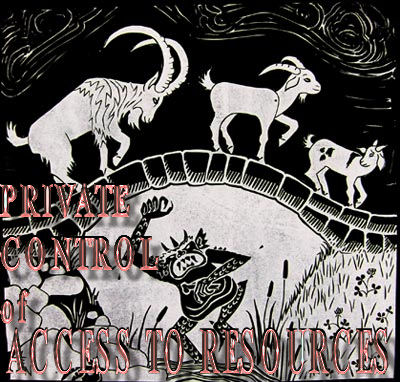 On 18 December 2009, Queenslander's were greeted with yet more bad news by Brisbane's Courier-Mail newspaper in the story
On 18 December 2009, Queenslander's were greeted with yet more bad news by Brisbane's Courier-Mail newspaper in the story 
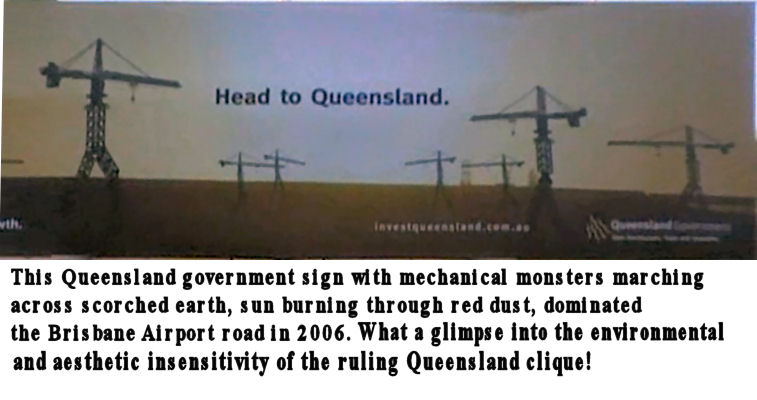
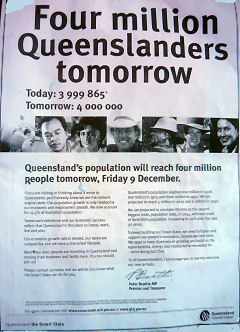
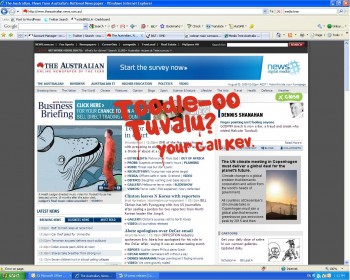




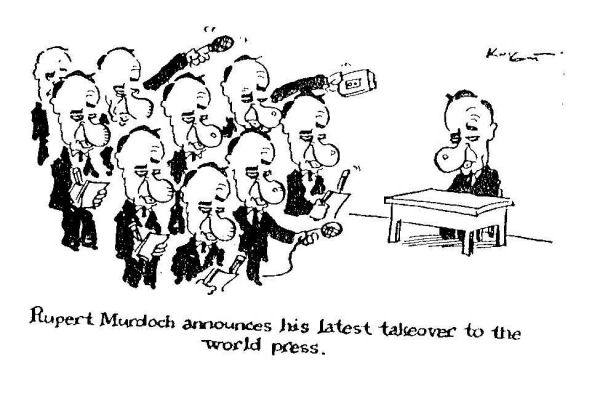


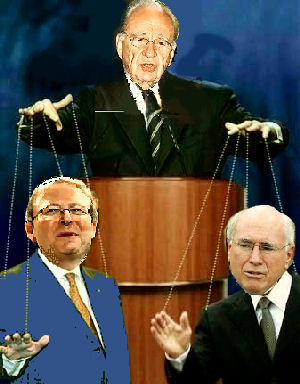
Recent comments